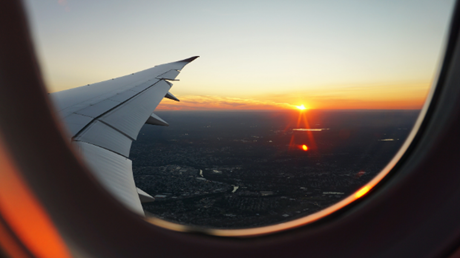As we enter a new year, it's important to remember the lessons we've learned.

I am a frequent flyer.
Technically, I used to be a frequent flyer—before the pandemic.
I used to get on these things called airplanes at places called airports to go to things called meetings. But when I do or did fly, I actually have a fear of flying. So, becuase I think this way, I did some research and discovered that when you're on a plane, turbulence is generally only dangerous on takeoff and landing. So, those are the time when I'm most stressed. I don't drink, but if I did, that would be the time I would!
What happens on an airplane facing turbulence is short lived.
Once I was on a plane when the pilot was trying to land in Phoenix during a storm. He came down once and at the last minute pulled up. Everyone gasped. After a second attempt was aborted, he said we didn't have enough fuel to divert, so he was going to try a third time.
I have never been in a more tense moment, but the whole event was over in probably 20 minutes.
Our bodies are designed to have certain responses like flight or fight in sudden moments of upheaval or danger. The challenge for us now is that turbulence has become a regular part of life involving multiple facets over a period of months. It's no understatement to say that turbulence has produced stress in us. Long term stress is not good for us personally, interpersonally, or physiologically; nevertheless, here we are.
Turbulence produces stress
There are four things related to turbulence.
First, turbulence produces stress.
A certain amount of stress is good for us. We stress our bodies when we exercise, for instance.
There are actually two kinds of stress. There is distress. That's what we normally think of, and that kind of stress over the long haul is not healthy.
But there ...
from Christianity Today Magazine
via


.gif)

.gif)
.gif)
